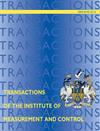A reverse chain search algorithm for the resource constraint in deep space detectors
IF 1.9
4区 计算机科学
Q3 AUTOMATION & CONTROL SYSTEMS
Transactions of the Institute of Measurement and Control
Pub Date : 2023-11-04
DOI:10.1177/01423312231203043
引用次数: 0
Abstract
Deep space exploration activities can effectively promote the development and application of space technology, which holds significant scientific and strategic value. Detectors operating in deep space are of long mission periods and substantial distance from Earth, posing challenges in timely resource replenishment. Moreover, scheduled missions may face external uncertainties, hindering their smooth execution. Therefore, resource constraint processing strategies that possess dynamic adjustment capabilities play a crucial role in ensuring the successful execution of deep space detectors. Existing methods mainly focus on studying fixed mission sequences, and the efficiency of planning methods is not high. Specifically, the single uncertainty is only considered, and there is a lack of detection and processing mechanisms, rendering the requirements of deep space detectors inadequate. In this paper, we propose a reverse chain search algorithm, aiming to efficiently plan missions subject to resource constraints and let the mission sequence to possess a certain degree of dynamic repair capability. The results have demonstrated that the resource allocated to each mission is within the resource value range. Compared with the classic algorithm, the proposed algorithm has fewer iterations and whose maximum flow value is accurate. Meanwhile, the potential resource constraints problem during execution can be alerted with the detection and warning system. The missions that were warned are repaired by a dynamic resource repair system, and the proposed algorithm is of higher efficiency and a certain ability to resist external uncertainties. Overall, this paper lays a solid foundation for the processing of resource constraints for deep space detectors.深空探测器资源约束的逆链搜索算法
深空探测活动可以有效地促进空间技术的发展和应用,具有重要的科学和战略价值。在深空运行的探测器任务周期长,距离地球距离远,对及时补充资源提出了挑战。此外,预定的任务可能面临外部不确定因素,妨碍其顺利执行。因此,具有动态调节能力的资源约束处理策略对于确保深空探测器的成功执行至关重要。现有的规划方法主要是研究固定的任务序列,规划方法的效率不高。具体来说,只考虑了单一的不确定性,缺乏检测和处理机制,使得深空探测器的要求不足。本文提出了一种逆链搜索算法,旨在有效地规划受资源约束的任务,使任务序列具有一定的动态修复能力。结果表明,分配给各任务的资源在资源值范围内。与经典算法相比,该算法迭代次数少,最大流量准确。同时,在执行过程中可能出现的资源约束问题可以通过检测和预警系统进行预警。采用动态资源修复系统对预警任务进行修复,该算法具有较高的效率和一定的抗外部不确定性能力。总体而言,本文为深空探测器资源约束的处理奠定了坚实的基础。
本文章由计算机程序翻译,如有差异,请以英文原文为准。
求助全文
约1分钟内获得全文
求助全文
来源期刊
CiteScore
4.10
自引率
16.70%
发文量
203
审稿时长
3.4 months
期刊介绍:
Transactions of the Institute of Measurement and Control is a fully peer-reviewed international journal. The journal covers all areas of applications in instrumentation and control. Its scope encompasses cutting-edge research and development, education and industrial applications.

 求助内容:
求助内容: 应助结果提醒方式:
应助结果提醒方式:


